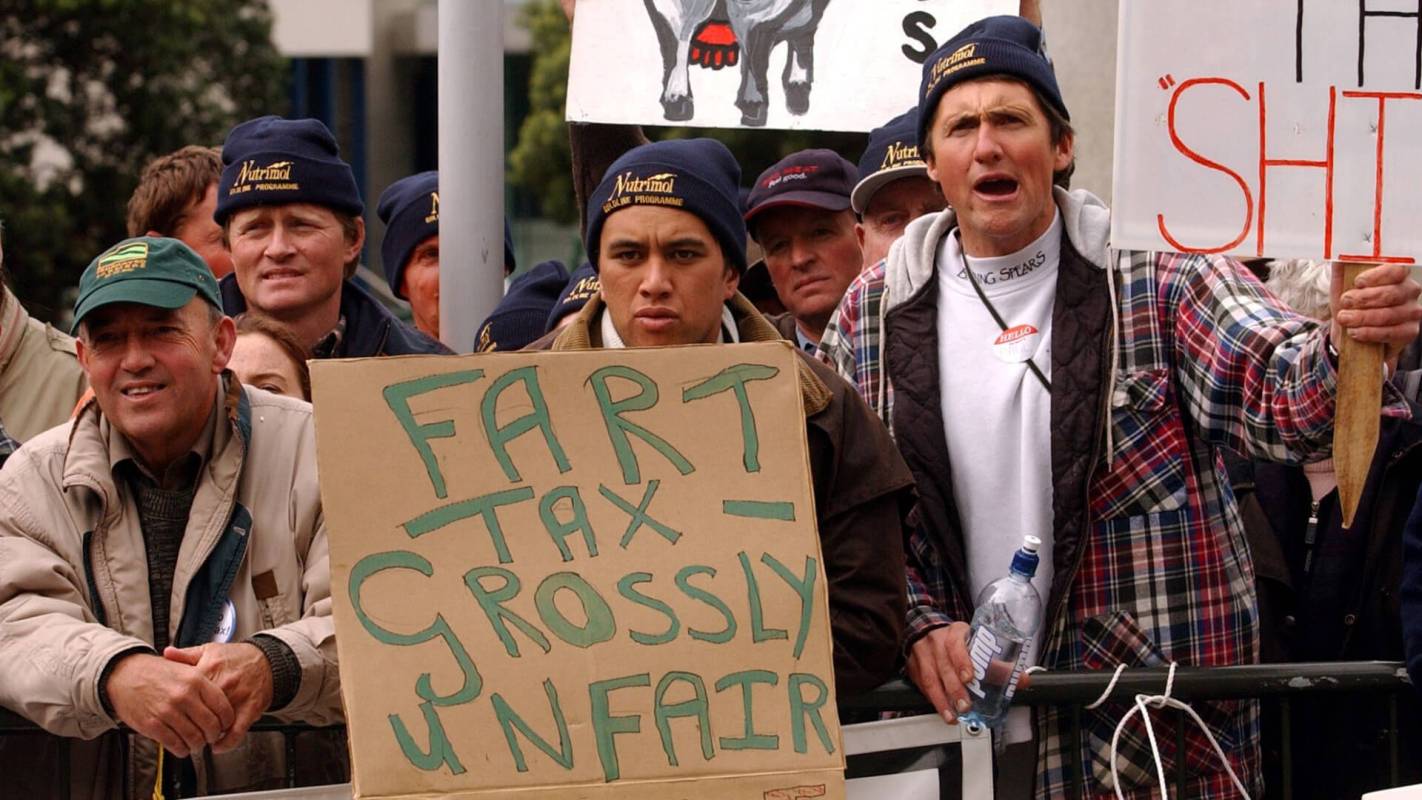As an infamous adage from everyone's favorite ogre says, "better out than in." But for New Zealand's livestock farmers, now facing a "burp tax," belching may soon be costly.
On Oct. 11, the New Zealand government proposed a policy to help fight our planet's overheating. By 2025, the country's farmers will have to pay a tax on the planet-warming gases their animals emit, primarily from belching. The belch tax, which would be the world's first, is estimated to reduce gas pollution from these farms by about 20 percent.
That's a big deal for a nation with an economy so dependent on farming. In fact, New Zealand has twice as many dairy cows as it does people — and over five times as many sheep. These gassy animals contribute significantly to the country's environmental footprint, with farms responsible for roughly one-half of New Zealand's planet-warming pollution.
Most of this pollution is methane gas coming from cow burps, which, pound for pound, actually heats up our planet at least 25 times faster than carbon dioxide gas.
Yet not all New Zealanders are thrilled with the plan. Dairy farmers in particular have expressed their discontent with the proposed law. In a mass protest, some rolled large tractors through several of the country's main city centers.
#LATEST Tractors have been driven through main city centres in the latest protest by the farmer advocacy group Groundswell.
— RNZ (@radionz) October 20, 2022
Look back over RNZ's updates. 👇 https://t.co/jsShitte4q
Convoys of farmers in tractors have been gathering in the cities of Wellington, Christchurch, and Auckland to display their anger over the tax. The farmers, alongside industry advocates, have now argued in dozens of protests that the belch tax will be too economically burdensome, especially for small rural farmers.
Jacinda Ardern, the nation's prime minister, has responded, arguing that the tax revenue could be put back into the farming industry to incentivize more environmentally friendly behavior.
Prime Minister Ardern also posited that the tax would give New Zealand a competitive advantage by proving that its farming can be more sustainable. Other New Zealanders, especially the nation's environmentalists, have also offered support for the proposed tax.
Despite the variety of opinions, it's clear that, without making changes to its agriculture sector, it will be difficult for New Zealand to hit its goal of not contributing to our planet's overheating by 2050.
Earlier this year, Ben & Jerry began piloting a program, known as Project Mootopia, to reduce its environmental impact with the help of red seaweed.
Researchers have found that adding some red seaweed to a cow's diet can reduce the amount of dangerous methane in its burps by up to 80%.
The ice cream maker is experimenting with the new seaweed diet at 15 of its dairy farms in the United States and the Netherlands and, if the program proves effective in reducing methane pollution, the company plans to expand the program to all of its farms globally.
Follow The Cool Down on Instagram and subscribe to our newsletter.








